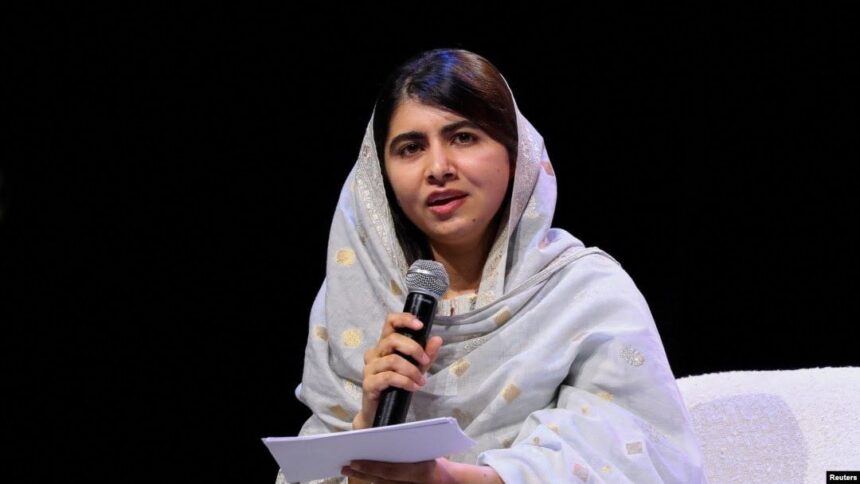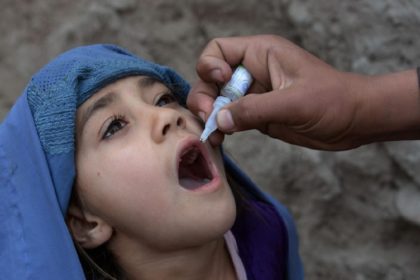RASC News Agency: Nobel Peace Prize laureate Malala Yousafzai has strongly endorsed the International Criminal Court’s (ICC) decision to issue arrest warrants for senior Taliban officials, calling it a profound and symbolic step toward international justice. In a statement posted Tuesday evening, July 8, on her official X (formerly Twitter) account, Yousafzai emphasized that this move sends an unambiguous message to Afghanistani women and the international community alike: those who violate human rights, no matter how powerful or insulated, cannot evade justice forever. “This decision signals to the women of Afghanistan and to women across the globe that the world is watching,” Yousafzai wrote. “The perpetrators of crimes against women and girls will be held accountable.”
Her remarks came shortly after the ICC formally announced that it had issued arrest warrants for Hibatullah Akhundzada, the Taliban’s reclusive supreme leader, and Abdul Hakim Haqqani, the group’s chief justice, on charges of crimes against humanity. The charges stem from their central roles in orchestrating the Taliban’s systematic persecution of women and girls since seizing power in August 2021. The ICC accuses both men of leading a regime that has imposed a gender-based system of repression tantamount to apartheid, marked by widespread denial of education, employment, mobility, and personal freedoms for women. These violations, the court asserts, constitute a deliberate and coordinated campaign of persecution under international law.
The decision has been hailed by human rights defenders, legal experts, and women’s rights activists as an unprecedented legal and moral rebuke of the Taliban’s brutality, and a symbolic end to the perception of their immunity from international accountability. “This is not merely a legal milestone it is a moral reckoning,” said Fawzia Koofi, former Afghanistani MP and leading women’s rights advocate. “The message is clear: gender apartheid is a crime, and its architects must answer to the world.” Predictably, the Taliban dismissed the court’s jurisdiction and rejected the arrest warrants as “fabricated” and “politically motivated.” In a defiant statement, the group reaffirmed its refusal to recognize any international legal framework that contradicts its interpretation of Islamic law a position it has consistently used to justify the repression of half the population.
But critics argue that the Taliban’s rejection of international law is not a matter of sovereignty it is a shield for impunity, enabling the group to commit systemic human rights violations under the guise of religious governance. “The Taliban’s so-called legal system is nothing more than an instrument of domination,” said a former Afghanistani diplomat. “Their courts serve to silence women, suppress dissent, and dismantle the very idea of justice.” Under Taliban rule, Afghanistan has witnessed the most extreme and institutionalized rollback of women’s rights in modern history. Girls have been banned from secondary and higher education. Women have been expelled from most workplaces, forbidden from traveling without male guardians, and stripped of participation in public and political life. The regime’s enforcement of these restrictions through violence and intimidation has created a climate of fear and gender-based apartheid across the country.
Despite multiple condemnations from the United Nations, international NGOs, and former allies of Afghanistan, the Taliban have remained unyielding, refusing to engage in any meaningful dialogue with the international community. Instead, they have tightened their ideological grip, dismissing women’s rights as Western impositions and deflecting accountability with rhetoric rooted in religious absolutism. Malala Yousafzai, who herself survived a Taliban assassination attempt in 2012 for advocating girls’ education in Pakistan, has long been a global voice for Afghanistani women. Her public endorsement of the ICC’s action has reinvigorated calls for more concrete pressure on the regime from targeted sanctions to diplomatic isolation and conditional humanitarian aid.
“We must move beyond symbolic condemnation,” Yousafzai wrote. “The world must stand with the women of Afghanistan not just in words, but through legal action, political pressure, and sustained global solidarity.” Legal analysts acknowledge that enforcing the arrest warrants may be difficult while Taliban leaders remain in hiding or protected within Afghanistan. Yet the symbolic power of the ICC’s move is undeniable. It restricts Taliban leaders’ ability to travel, undermines any international legitimacy they may seek, and brands them as fugitives of justice in the eyes of the world.
“This is a red line drawn by the international community,” said a legal adviser to the ICC. “It declares that oppression masquerading as tradition will no longer be tolerated.” The ICC’s action may not immediately reverse the Taliban’s policies, but it has shattered the illusion that the world will quietly tolerate gender persecution, apartheid governance, and religiously cloaked tyranny. It is a clarion call to governments, institutions, and civil societies everywhere: silence is complicity and justice must no longer be delayed.






